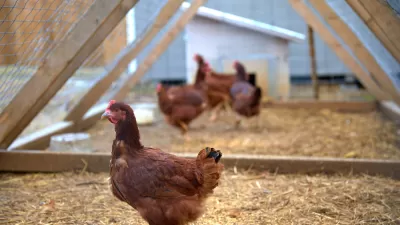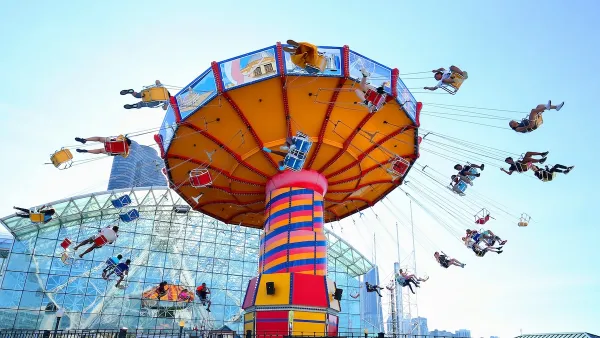In an effort to elevate a standard of care for livestock, an ordinance sponsored by Ald. Anthony Napolitano seeks to regulate fowl and livestock animal ownership within city limits.

In Chicago, a proposed ordinance to amend municipal code seeks to regulate standards of care related to livestock ownership. The ordinance, sponsored by Ald. Anthony Napolitano, would require livestock owners to notify neighbors 500 feet from the residence of their animals, establish a license fee, and ban rooster ownership in the city.
"In a city easily charmed by animal tales, including last year’s Humboldt Park alligator, there are no distinct regulations about who can own livestock and where animals can be kept. In the city of Chicago, people can legally house horses, goats, pigs, donkeys, cows and sheep. But, after allegations of animal abuse arose when a dead horse was found at an Englewood home recently, officials are making a push for tighter restrictions," reports Jessica Villagomez.
At present, only dogs, horses, and beehives require registration. The ordinance would limit the types of livestock allowed on private residential properties to six fowl and two livestock animals. Owners would be required to maintain a minimum of 4 square feet per fowl and 15 square feet per livestock animal.
Some livestock owners take issue with the 500-foot notification policy, considering the ordinance to be unnecessarily bureaucratic.

Planetizen Federal Action Tracker
A weekly monitor of how Trump’s orders and actions are impacting planners and planning in America.

Maui's Vacation Rental Debate Turns Ugly
Verbal attacks, misinformation campaigns and fistfights plague a high-stakes debate to convert thousands of vacation rentals into long-term housing.

San Francisco Suspends Traffic Calming Amidst Record Deaths
Citing “a challenging fiscal landscape,” the city will cease the program on the heels of 42 traffic deaths, including 24 pedestrians.

Defunct Pittsburgh Power Plant to Become Residential Tower
A decommissioned steam heat plant will be redeveloped into almost 100 affordable housing units.

Trump Prompts Restructuring of Transportation Research Board in “Unprecedented Overreach”
The TRB has eliminated more than half of its committees including those focused on climate, equity, and cities.

Amtrak Rolls Out New Orleans to Alabama “Mardi Gras” Train
The new service will operate morning and evening departures between Mobile and New Orleans.
Urban Design for Planners 1: Software Tools
This six-course series explores essential urban design concepts using open source software and equips planners with the tools they need to participate fully in the urban design process.
Planning for Universal Design
Learn the tools for implementing Universal Design in planning regulations.
Heyer Gruel & Associates PA
JM Goldson LLC
Custer County Colorado
City of Camden Redevelopment Agency
City of Astoria
Transportation Research & Education Center (TREC) at Portland State University
Jefferson Parish Government
Camden Redevelopment Agency
City of Claremont




























